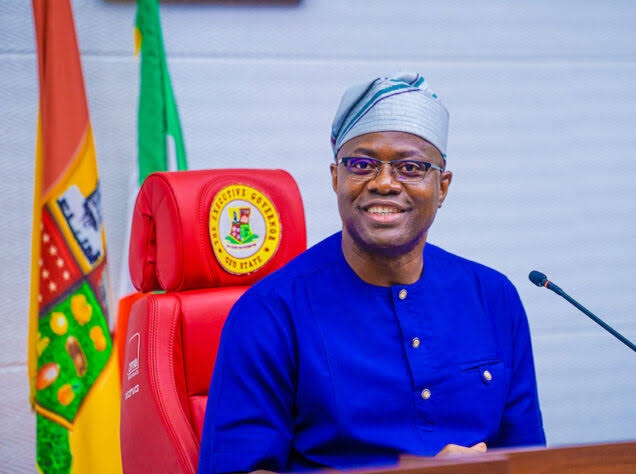Governor Seyi Makinde of Oyo State has downplayed the political implications of former Vice President Atiku Abubakar's recent resignation from the Peoples Democratic Party (PDP), asserting that the party remains strong and stable regardless of individual decisions. Makinde made this statement during a press interaction on the sidelines of a colloquium held in Akure to commemorate the 10th Coronation Anniversary of the Deji of Akure, Oba Aladetoyinbo Aladelusi.
According to the governor, the PDP is not defined by any one individual but has established itself as a solid political institution with the capacity to withstand changes in membership. He pointed out that people are free to join or leave the party at will, but such movements do not alter the party’s core strength or values.
“I don’t think that will make any dent on PDP as a party. PDP is an institution and you have freedom of entrance and exit,” Makinde said. This comes after Atiku, who has been a longstanding member and former presidential candidate of the PDP, formally announced his exit from the party in Adamawa on Wednesday.
Governor Makinde, who was also the keynote speaker at the event, used the platform to touch on broader governance issues, especially the often-underestimated role of traditional institutions in the nation's political and developmental architecture. His lecture, titled “The Role of Nigeria’s Traditional Institutions in Nation Building: Impediments, Impacts, and Prospects,” emphasized the need to restore and strengthen traditional structures as essential components of grassroots governance and national identity.
He described traditional rulers not as outdated figures but as vibrant and critical elements in preserving cultural values and ensuring communal stability. “Long before Nigeria’s formal administrative systems took root, traditional rulers dispensed justice, upheld values, coordinated local security, and kept communities united,” he noted. These roles, according to the governor, remain vital today.
Makinde warned that any model of nation-building that sidelines these institutions is inherently flawed. He argued that the country’s governance system would benefit greatly from embracing and integrating traditional leaders into formal decision-making structures.
"Today, they remain custodians of grassroots trust. And nation-building that ignores them does so at its peril. No wonder politicians continue to seek their blessings and validation,” he stated, emphasizing the continued relevance and influence of traditional rulers across Nigeria.
Highlighting initiatives undertaken in Oyo State, Makinde revealed that his administration has deliberately engaged with traditional rulers in a structured and meaningful way, with notable success in improving governance outcomes. According to him, effective governance should not be judged merely by economic metrics or resource production, but rather by how strong its institutions are and the level of justice and service they provide to the people.
He added that the legacy of governance lies in institutional strength, fairness, and public trust. “Nation-building is not about how much oil we produce, but about the strength of our institutions, their ability to serve the people justly, and the legacy they leave behind,” Makinde emphasized.
The event also featured contributions from the traditional ruler, Oba Aladelusi, who expressed appreciation for the governor’s advocacy and support for traditional institutions. The monarch called for constitutional reforms that would empower and better position traditional rulers in the national framework. He stressed that traditional leaders have a significant role to play in maintaining unity and fostering development at the grassroots level.
He also spoke warmly about the unity and peaceful atmosphere in Akure, attributing it to the collaborative efforts of the state government and the people. “Akure is one without division,” the monarch noted as he lauded both the government and the community for their continued support of the Deji palace.
The colloquium brought together political leaders, cultural figures, and scholars, all united by the shared recognition of the importance of traditional institutions in national development. As Nigeria continues to grapple with complex governance challenges, the messages from this event serve as a reminder that the future of the country may well depend on how successfully it integrates its oldest and most enduring structures into the modern political landscape.













![Content Creator Angelica Kelechi Speaks Out on Alleged Sexual Assault at Khloe Abiri’s Spa [VIDEO]](https://blogger.googleusercontent.com/img/b/R29vZ2xl/AVvXsEgQStip4cn2DAOvQ2hNFU30OAFWoxfQIDOnStd0uVgwwxKrFAQYYvtFni6QV04OGP8dyKk5TCAhXM5es9linl1ClhjPzaazz2tTt0LmJ5lFVe5202o2McF9QROT1v2hEyNTdY-M1KRuLTY6OqqysKNfcsY5bCtwCIP8wEQ4AXcfQfTaXWWZiixqf82NDH5a/w72-h72-p-k-no-nu/abiri-khloe123.jpg)






0 Comments
Hey there! We love hearing from you. Feel free to share your thoughts, ask questions, or add to the conversation. Just keep it respectful, relevant, and free from spam. Let’s keep this space welcoming for everyone. Thanks for being part of the discussion! 😊